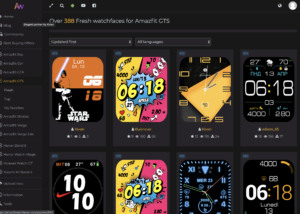Un breve tutorial da seguire per installare PHP 7 su Ubuntu LTS 14.04 (versione corrente PHP 7.0.2) ed usarlo con PHP-FPM e FastCGI
Ricordiamo che PHP-FPM è compatibile sia per nginx che Apache, mentre FastCGI solo con Apache.
Creiamo la directory dove andremo a lavorare e scarichiamo i sorgenti di PHP 7 da github
mkdir -p /opt/php-7.0.2 mkdir /usr/local/src/php5-build cd /usr/local/src/php5-build wget http://de1.php.net/get/php-7.0.2.tar.bz2/from/this/mirror -O php-7.0.2.tar.bz2 tar jxf php-7.0.2.tar.bz2 cd php-7.0.2/
Installiamo un pò di pacchetti necessari alla compilazione
apt-get install build-essential nano
apt-get install libfcgi-dev libfcgi0ldbl libjpeg-turbo8-dbg libmcrypt-dev libssl-dev libc-client2007e libc-client2007e-dev libxml2-dev libbz2-dev libcurl4-openssl-dev libjpeg-dev libpng12-dev libfreetype6-dev libkrb5-dev libpq-dev libxml2-dev libxslt1-dev
In caso di compilazione con –with-imap, è necessario eseguire questo comando
ln -s /usr/lib/libc-client.a /usr/lib/x86_64-linux-gnu/libc-client.a
Bene ora compiliamo con
./configure --prefix=/opt/php-7.0.2 --with-pdo-pgsql --with-zlib-dir --with-freetype-dir --enable-mbstring --with-libxml-dir=/usr --enable-soap --enable-calendar --with-curl --with-mcrypt --with-zlib --with-gd --with-pgsql --disable-rpath --enable-inline-optimization --with-bz2 --with-zlib --enable-sockets --enable-sysvsem --enable-sysvshm --enable-pcntl --enable-mbregex --enable-exif --enable-bcmath --with-mhash --enable-zip --with-pcre-regex --with-pdo-mysql --with-mysqli --with-mysql-sock=/var/run/mysqld/mysqld.sock --with-jpeg-dir=/usr --with-png-dir=/usr --enable-gd-native-ttf --with-openssl --with-fpm-user=www-data --with-fpm-group=www-data --with-libdir=/lib/x86_64-linux-gnu --enable-ftp --with-imap --with-imap-ssl --with-kerberos --with-gettext --with-xmlrpc --with-xsl --enable-opcache --enable-fpm
make make install
Copiamo i file php.ini e php-fpm.conf nelle directory giuste
cp /usr/local/src/php5-build/php-7.0.2/php.ini-production /opt/php-7.0.2/lib/php.ini cp /opt/php-7.0.2/etc/php-fpm.conf.default /opt/php-7.0.2/etc/php-fpm.conf cp /opt/php-7.0.2/etc/php-fpm.d/www.conf.default /opt/php-7.0.2/etc/php-fpm.d/www.conf
Apriamo il file /opt/php-7.0.2/etc/php-fpm.conf ed eliminiamo il ; sulla linea del pid
pico /opt/php-7.0.2/etc/php-fpm.conf
[...]
pid = run/php-fpm.pid
[...]
Ora dobbiamo modificare la porta da 9000 (in uso nella versione standard presente in Ubuntu) a 8999
pico /opt/php-7.0.2/etc/php-fpm.d/www.conf
[...]
listen = 127.0.0.1:8999
[...]
Ora è necessario creare gli script di init
pico /etc/init.d/php-7.0.2-fpm
#! /bin/sh
### BEGIN INIT INFO
# Provides: php-7.0.2-fpm
# Required-Start: $all
# Required-Stop: $all
# Default-Start: 2 3 4 5
# Default-Stop: 0 1 6
# Short-Description: starts php-7.0.2-fpm
# Description: starts the PHP FastCGI Process Manager daemon
### END INIT INFO
php_fpm_BIN=/opt/php-7.0.2/sbin/php-fpm
php_fpm_CONF=/opt/php-7.0.2/etc/php-fpm.conf
php_fpm_PID=/opt/php-7.0.2/var/run/php-fpm.pid
php_opts="--fpm-config $php_fpm_CONF"
wait_for_pid () {
try=0
while test $try -lt 35 ; do
case "$1" in
'created')
if [ -f "$2" ] ; then
try=''
break
fi
;;
'removed')
if [ ! -f "$2" ] ; then
try=''
break
fi
;;
esac
echo -n .
try=`expr $try + 1`
sleep 1
done
}
case "$1" in
start)
echo -n "Starting php-fpm "
$php_fpm_BIN $php_opts
if [ "$?" != 0 ] ; then
echo " failed"
exit 1
fi
wait_for_pid created $php_fpm_PID
if [ -n "$try" ] ; then
echo " failed"
exit 1
else
echo " done"
fi
;;
stop)
echo -n "Gracefully shutting down php-fpm "
if [ ! -r $php_fpm_PID ] ; then
echo "warning, no pid file found - php-fpm is not running ?"
exit 1
fi
kill -QUIT `cat $php_fpm_PID`
wait_for_pid removed $php_fpm_PID
if [ -n "$try" ] ; then
echo " failed. Use force-exit"
exit 1
else
echo " done"
echo " done"
fi
;;
force-quit)
echo -n "Terminating php-fpm "
if [ ! -r $php_fpm_PID ] ; then
echo "warning, no pid file found - php-fpm is not running ?"
exit 1
fi
kill -TERM `cat $php_fpm_PID`
wait_for_pid removed $php_fpm_PID
if [ -n "$try" ] ; then
echo " failed"
exit 1
else
echo " done"
fi
;;
restart)
$0 stop
$0 start
;;
reload)
echo -n "Reload service php-fpm "
if [ ! -r $php_fpm_PID ] ; then
echo "warning, no pid file found - php-fpm is not running ?"
exit 1
fi
kill -USR2 `cat $php_fpm_PID`
echo " done"
;;
*)
echo "Usage: $0 {start|stop|force-quit|restart|reload}"
exit 1
;;
esac
rendiamo eseguibili lo script
chmod 755 /etc/init.d/php-7.0.2-fpm update-rc.d php-7.0.2-fpm defaults
creiamo il servizio dedicato a PHP 7
pico /lib/systemd/system/php-7.0.2-fpm.service
[Unit] Description=The PHP 7 FastCGI Process Manager After=network.target [Service] Type=simple PIDFile=/opt/php-7.0.2/var/run/php-fpm.pid ExecStart=/opt/php-7.0.2/sbin/php-fpm --nodaemonize --fpm-config /opt/php-7.0.2/etc/php-fpm.conf ExecReload=/bin/kill -USR2 $MAINPID [Install] WantedBy=multi-user.target
Abilitiamo il servizio e ricarichiamo systemd (comandi non necessari sotto Ubuntu)
systemctl enable php-7.0.2-fpm.service
systemctl daemon-reload
ora avviamo PHP 7 FPM con
service php-7.0.2-fpm start
o
/etc/init.d/php-7.0.2-fpm start
o sui server che usano systemd
systemctl start php-7.0.2-fpm.service
Ora vediamo come aggiungere Zend OPCache. Editiamo il file /opt/php-7.0.2/lib/php.ini
pico /opt/php-7.0.2/lib/php.ini
e alla fine del file aggiugiamo
[...]
zend_extension=opcache.so
Per verificare il corretto funzionamento di PHP 7 eseguiamo il seguente comando
cd /opt/php-7.0.2/bin ./php --version
Ricordiamo che Memcache e APCu non possono essere ancora installati su PHP 7, quindi per il momento evitiamo l’installazione.
Guida basata su HowToForge




